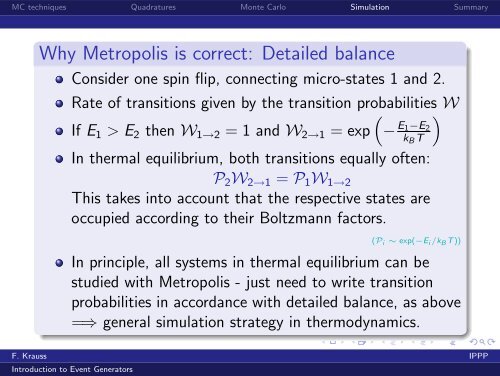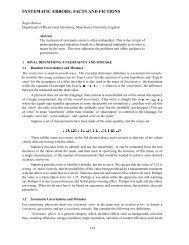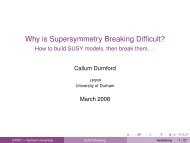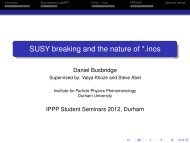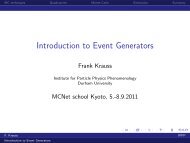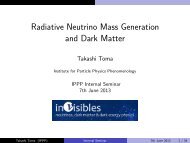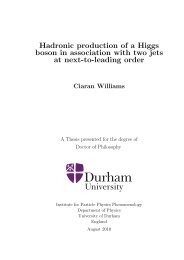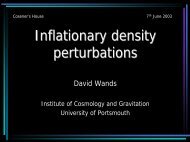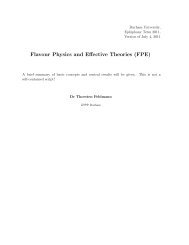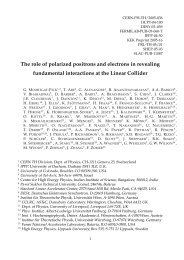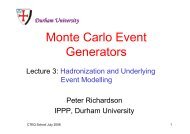Lecture 1 (The Monte Carlo principle) - Institute for Particle Physics ...
Lecture 1 (The Monte Carlo principle) - Institute for Particle Physics ...
Lecture 1 (The Monte Carlo principle) - Institute for Particle Physics ...
You also want an ePaper? Increase the reach of your titles
YUMPU automatically turns print PDFs into web optimized ePapers that Google loves.
MC techniques Quadratures <strong>Monte</strong> <strong>Carlo</strong> Simulation Summary<br />
Why Metropolis is correct: Detailed balance<br />
Consider one spin flip, connecting micro-states 1 and 2.<br />
Rate of transitions given by the transition probabilities W<br />
( )<br />
If E 1 > E 2 then W 1→2 = 1 and W 2→1 = exp<br />
− E 1−E 2<br />
k B T<br />
In thermal equilibrium, both transitions equally often:<br />
P 2 W 2→1 = P 1 W 1→2<br />
This takes into account that the respective states are<br />
occupied according to their Boltzmann factors.<br />
(P i ∼ exp(−E i /k B T))<br />
In <strong>principle</strong>, all systems in thermal equilibrium can be<br />
studied with Metropolis - just need to write transition<br />
probabilities in accordance with detailed balance, as above<br />
=⇒ general simulation strategy in thermodynamics.<br />
F. Krauss IPPP<br />
Introduction to Event Generators


